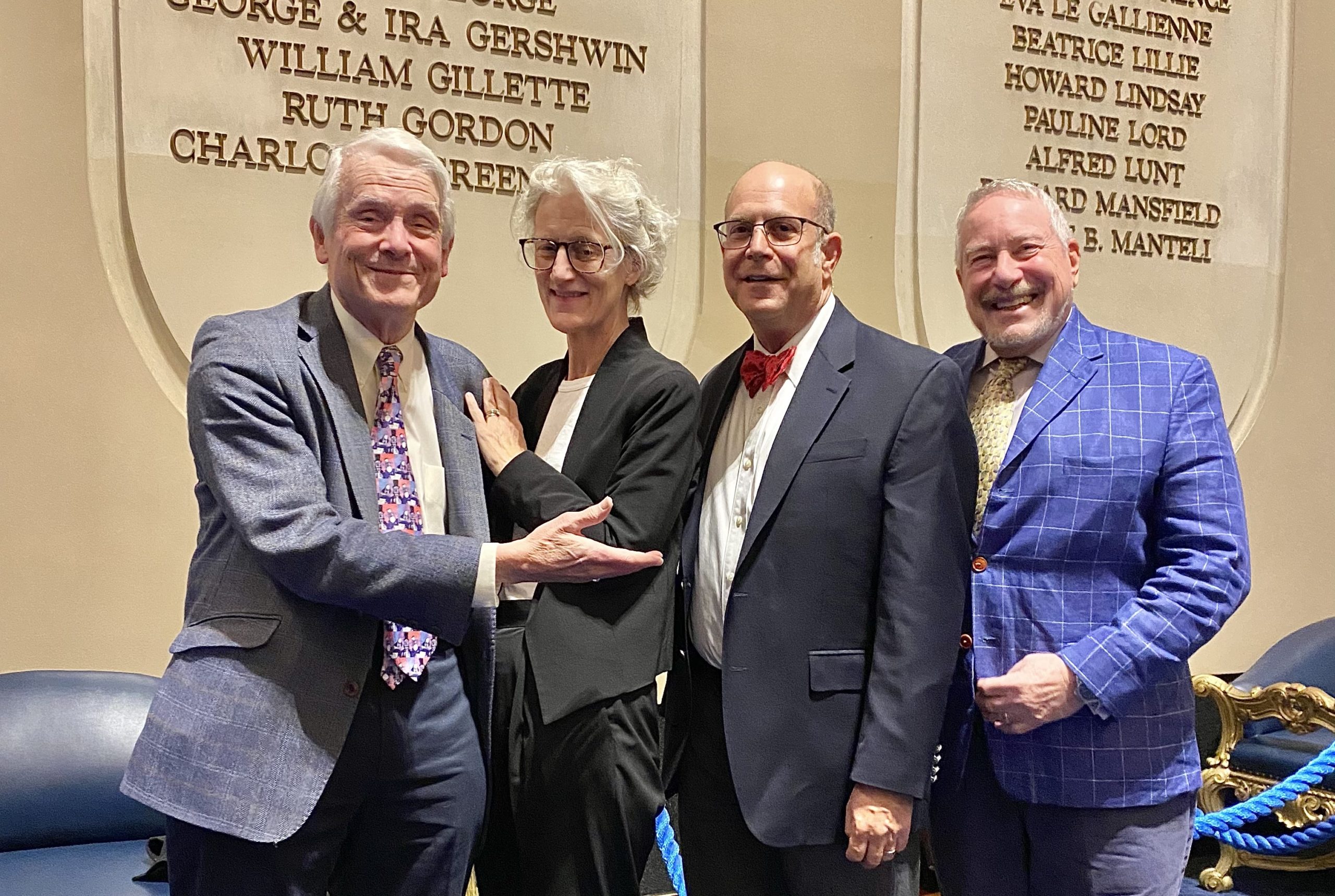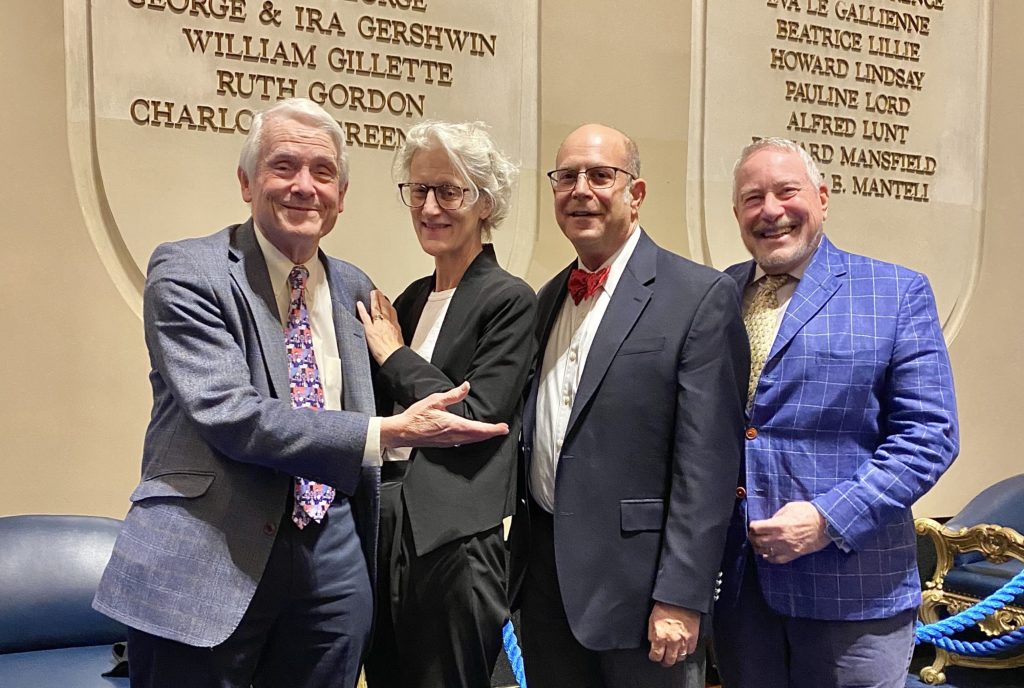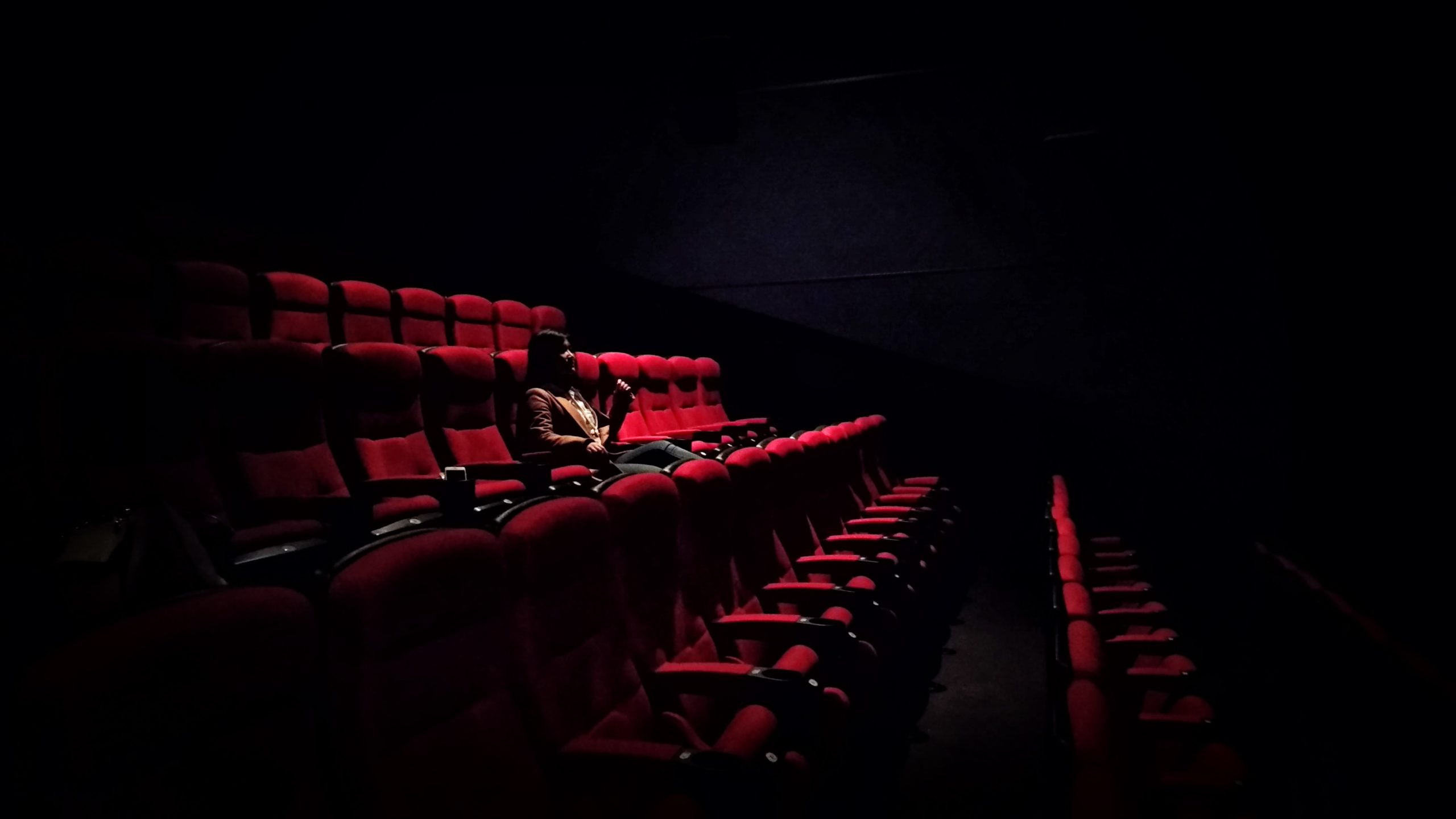
Actors, playwrights, director, and sound designer celebrated in 2022 Theater Hall of Fame ceremony
[Text based on November 17, 2022 Pittsburgh Post-Gazette article by ATCA member Chris Rawson, with some style sheet and other small edits. Additional coverage by Rawson can be found here.]

Successful theater is of the present, but also of the past, haunting our memories. So what’s more natural than to celebrate those memories?
The Theater Hall of Fame’s 2022 induction ceremony was held Monday at Broadway’s Gershwin Theatre in New York City. Celebrating past and present also spoke to the future, as the six inductees will be making and influencing theater to come.
The 2022 inductees are actors Christine Ebersole and Bill Irwin, director Frank Galati, sound designer Abe Jacob, and playwrights Lynn Nottage and Ntozake Shange. Normally eight are inducted, but this year two members were postponed until 2023: actor Mandy Patinkin (away working on a movie) and playwright Suzan-Lori Parks, who is ill.
The annual ceremony takes place in the Gershwin’s upper rotunda, where an audience of about 150 gather under walls covered with golden letters listing members selected each year since the hall’s founding in 1971.
The criteria for selection were described by Dana Ivey, a member who sits on the supervising committee. Nominees must have onstage careers of at least 25 years, with at least five major credits. They are then voted on by an electorate of over 300, including members of the hall and the nationwide American Theatre Critics Association. Terry Hodge Taylor is the producer.
The evening’s host was hall member Andre De Shields, master of a career of five decades and still going strong. Each inductee was introduced by someone of their own choosing, a professional colleague or friend.
Actor-director Brandon Dirden presented Irwin, described on the hall ballot as “actor, writer, choreographer, clown.” Dirden, who is now in “Take Me Out” on Broadway and has a history of doing August Wilson plays, met Irwin when he had to take a clowning course in theater school and discovered how wordless performance can create joy. First known as a mime, Irwin was the first such artist to win a MacArthur “genius grant.” He then began to act on Broadway, winning a Tony in “Who’s Afraid of Virginia Woolf?”
Irwin expressed awe at having his name join the others on the walls. He then got a good laugh by saying he couldn’t wait to tell his one-time partner, “the world’s greatest living clown,” David Shiner, “because he’ll be so pissed off.” Irwin is starting to write TV pilots, and he finds his stories “are always set in a theater” – live performance always being at their heart.
Playwright Erika Dickerson-Despenza, best known for her “Cullud Wattah” last year at The Public Theater, inducted Shange, the inspiring playwright and poet who was 70 when she died in 2018. Shange continues to move audiences with revivals of her best-known work, “for colored girls who have considered suicide / when the rainbow is enuf,” a choreopoem that moved from Off-Broadway to Broadway in 1976.
Dickerson-Despenza spoke with poetic emotion about Shange’s influence as both playwright and person, encouraging her students and followers. She was “my literary mama,” who knew that “young people are the treasures of Black culture.”
Nevin Steinberg, a sound designer of 16 Broadway shows including the Tony-winning “Hadestown,” presented Jacob, often described as the “godfather of sound design.”
Jacob’s career began with rock concerts in the 1960s but moved to theater in the 1970s with “Hair” and “Jesus Christ Superstar,” eventually accumulating some 40 Broadway shows. He was a pioneer, using new equipment and styles to create sound design as a separate field, leading eventually to the creation of a new Tony Award in 2008.
Steinberg brought that career alive with vivid description. Jacob wasn’t present, but Steinberg made him seem so, praising him as mentor to a couple of generations in the field, as well as to himself. In panic on a job, he said, “I rang him up and he talked me down.”
BJ Jones, artistic director of the Northlight Theatre in Skokie, Ill., presented Galati, a nationally known director but also hugely influential as a teacher of the many talents who’ve come out of the Chicago area. Shows he’s directed on Broadway include “Grapes of Wrath” (Tony), “Ragtime” and Seussical.” (In the audience were Stephen Flaherty and Lynn Ahrens, who wrote the two musicals. Flaherty also joined Galati to write a musical about his passion, Gertrude Stein.)
Jones, who said he’s had 44 years “acting with, directing and being directed by” Galati, focused more on his personal support of generations of Chicago actors, playwrights and the whole Steppenwolf company.
In response, Galati began by quoting the first word in Samuel Beckett’s play, “Endgame”: “Finish.”
“The rehearsal hall is where I’ve spent the happiest hours of my life,” he said, and concluded, as if we were all his actors, “Let’s warm up, now take it again, from the top!”
Speaking about inductee Ebersole was Scott Frankel, composer of her greatest Broadway success, “Grey Gardens,” in which she played Big Edie in Act 1 and her daughter, Little Edie, in Act 2, set 32 years later.
“Like a Maserati,” he said, “Christine can go slow, but she’s designed to go fast.”
Glamorous and wide-eyed, Ebersole stood up and said, “This is quite an honor,” then comically protested, “but I just wanted to be a nurse!”
When her father first saw her as a baby, “he proclaimed I was going to be a great dramatic actress,” she said. But until she saw other kids acting in school, she didn’t discover “being part of this other-worldly experience of being an actor on the stage … the energy of being before a live audience.”
Liesl Tommy, a South African-American director, introduced Nottage, a prolific playwright whose work includes “Clyde,” “Intimate Apparel,” and two Pulitzer Prize winners, “Ruined” and “Sweat.”
Tommy described the strong effect of the 15 plays and musicals written by this “child of Brooklyn.” “Her work feels deep because her life is deep,” she said. At them, we sit, deeply moved, becoming a community under their influence.
Responding to the names on the walls of the Gershwin Theatre, Nottage said her work always thinks “so much of our ancestors” and “a rich tradition of storytellers and griots.” The theater “fills in those blank spaces” of the past, she said.
After sharing the history and thoughts of the inductees with recognition, laughter and applause, the audience gathered with them in the upper lobby, where pictures and memorabilia of hall members are displayed, to drink, eat and remember more memories.
— Submitted by Chris Rawson, lightly edited by Martha Wade Steketee





Sorry, the comment form is closed at this time.